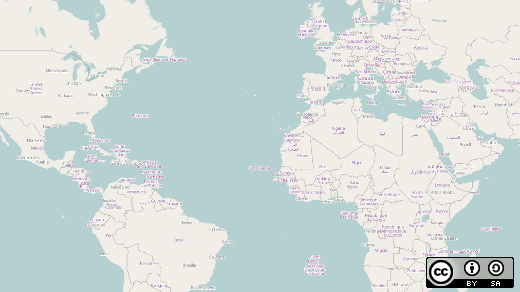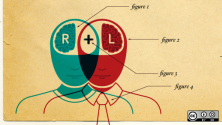On Jan 21, 2008, Marie Smith Jones died. Her death was not just a loss of one human being, she was the last speaker of the Eyak language.
Eyak was spoken in southern, central Alaska. We permanently lost one color from the mosaic of our limited linguistic diversity. With a language, not only a language dies, but with it a part of a community's history, intellectual and cultural diversity, and cultural identity.
In India, the situation is not different. I searched the Language Atlas of UNESCO and found out that 197 Indian languages are endangered, 2471 total languages worldwide. One of these endangered languages is from the region from where I originally belong: Bihar, a state of India. I work in the free and open source software (FOSS) field, focused on localization. The language I do my work in is Hindi. I've also worked in Maithili, an Indian language, mentoring the community and help develop several applications in it, including Fedora, GNOME, KDE , and Firefox.
Photo cred: Moseley, Christopher (ed.). 2010. Atlas of the World’s Languages in Danger, 3rd edn. Paris, UNESCO Publishing. Online version.
This work gave me a sense of satisfaction as well as courage to work on efforts to save and proliferate endangered languages. At one point, I decided that working with the Angika language and establishing it on FOSS platforms would be an important endeveour, for the world, and for the Angika language community.
The Language Atlas of UNESCO, describes the Angika language as being in a 'vulnerable' condition. It is spoken in the state of Bihar, also in Jharkhand and some parts of Nepal. With the help of a local publisher, I organized a seminar titled, Viśva bhāṣā mānacitra para aṅgikā" (Angika on World Language Map), in June 2013. Several writers, poets, linguists, and journalists were present. Though some understood, most were unawere that Angika is a dying language!
The seminar was a success. The press of Bihar covered it. Attendeees wanted to make Angika an available language on operating systems. And, which community of technical folks came forward to help this dying language? Of course FOSS! The first thing to do was to ensure that Angika is available on The GNU C Library, or glibc. So, the first challenge was to create a locale for Angika (anp_IN). I filed a bug: New Language Locale : Angika (anp). With the help of community, and an Angika linguist, I created the locale. The bug was successfully fixed and resolved within a week.
This is the power of FOSS. There are 6000 languages in the world, and my hope is that we could have 6000 locales in glibc to relfect that. I believe if our community works together, this dream could be realized.
To begin localization, you will need a few things information on terminology. A great resource for this is the FUEL Project. For Angika, the draft terminology proposed by the community is at FUEL on its Zanata instance. I requested new team registration for the Angika language on Firefox and Fedora. Now work has begun for Firefox. Also, the plural rules bug for Angika (anp) is under process at CLDR.
This all is being done under a small group called Bhasha Ghar. A dying language on the Language Atlas of UNESCO is now live on a FOSS platform. It is my experience that saving one color from the mosaic of our limited linguistic diversity is not too hard to do, especially for the FOSS community!
From a poem by Alitet Nemtushkin:
If I forget my native speech,
And the songs that my people sing
What use are my eyes and ears?
What use is my mouth?
If I forget the smell of the earth
And do not serve it well
What use are my hands?
Why am I living in the world?
How can I believe the foolish idea
That my language is weak and poor
If my mother's last words
Were in Evenki?








6 Comments